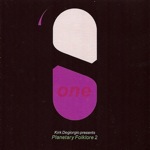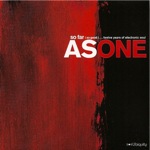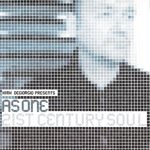
Jeff Chang: Can't Stop, Won't Stop
Currently a third of the way through this superb and comprehensive history of Hip Hop. Chang traces the roots of today's global Hip Hop phenomena, all the way back to the Kingston & South Bronx ghetto's of the early-seventies.
The pre-Hip Hop culture of gangs, drugs and poverty against a back-drop of short-sighted urban renewal programs is particularly fascinating. This stark reality of life in the South Bronx is captured in the 1979 documentary "80 Blocks from Tiffany's":
There are also two graffiti-based Hip Hop documentaries from the early-eighties worth watching: "All City" and "Style Wars" by Henry Chalfant.
Being a white kid growing up in leafy Suffolk, my experience of Hip Hop culture was of course entirely different - totally removed from the harsh reality shown in these documentaries.
But my experience is valid as it is a perfect example of the global nature of Hip Hop. Just as the graffiti artists yearned to bust out of the confines of their home turf and go "All City", the commercialization of home-grown "rap" music by record label owners Sylvia Robinson (Sugarhill), Paul Winley (Paul Winley) and Bobby Robinson (Enjoy) led to Hip Hop culture breaking out worldwide to mass youth appeal.
My first exposure to Hip Hop culture was preceded by my own "Adventures On the Wheels Of Steel". I had acquired my parents record deck and armed with my Aunt's collection of funk/disco 7"s proceeded to play them to death. Two of the records I inherited came in for extra abuse: Gary's Gang: "Keep On Dancin'" (1979 Columbia) and Lonnie Liston Smith: "Space Princess" (1978 Columbia).

These two records had instrumental sections which focused on percussion. I gravitated towards these sections and wished I could extend them somehow. Simply lifting up the needle and returning it roughly back to the beginning of the "break" sufficed, until I came up with the idea of putting a piece of blu-tack on the vinyl at a place where the needle arm would hit it and gently scratch or jump back to the beginning of the break. (The damage to the needle soon put an end to my plans and I forgot about this attempt at extending breaks until I heard "The Adventures Of Grandmaster Flash On The Wheels Of Steel" - a record which made perfect sense to me).
Later that same year (1979), I was doing my usual Friday night routine of hiding a portable radio under my bed - a cassette recorder with an external microphone up against the speaker, taping the Disco Top 40 show on Radio Luxembourg, hosted by Tony Prince. Over the weekend I would play the C90's back and tick off the track names against the printed chart in that weeks Smash Hits magazine.
A particular record that caught my attention was by a band I was familiar with from my Aunt's collection of 7"s - The Fatback Band. Now simply known as Fatback, this NY State based funk group always seemed upfront with the latest underground dance trends: previous hits included "Are You Ready (Do The Bus Stop)" and "Spanish Hustle." Now, albeit somewhat belatedly, they were the first mainstream band to release a 'rap' record: "King Tim III (Personality Jock)".

This mainstream attempt at 'rap' was a gentler introduction than "Rapper's Delight" which came out a few weeks later. "King Tim III" had three rap sections in amongst an original slice of typical Fatback funk, whereas the Sugarhill Gang's "Rapper's Delight" was a continuous stream of rap lyrics from 3 different "MC's" over an extended instrumental version of Chic's "Good Times".
If the continuous barrage of quick-fire lyrics over a well-known disco hit wasn't shocking enough, I was in for another surprise when I went to the only record store in Suffolk that sold the occasional US import to buy a copy. They only had one US 12" copy (with the original red label) and it was far too expensive for somebody used to saving his lunch money to buy ex-jukebox 7"s for 50p each. The store owner told me it was reserved for himself in any case. He played it in the store and that's when I realized I had only heard the short version on the radio. The full version was 15 minutes long!

"Rapper's Delight" became a huge chart hit in the UK, and eventually I was able to afford a UK licensed 12" version. By then, I had heard an even better rap record: The Younger Generation's "We Rap More Mellow" (1979 Brass). A 12" so rare it was only in the mid-80's that I finally found a copy in a charity store in Ipswich - amongst a collection of disco 12"s sold by a US serviceman apparently.

The Younger Generation soon became The Furious Five, and with Grandmaster Flash made many classic rap and electro hits for the Sugarhill label. But only a few rap records - usually from more mainstream soul labels - made it into the disco charts over the next year or so, e.g. Jocko "Rhythm Talk" (1979 Philadelphia International) - a rap record that made the most of the huge success of its backing track: McFadden & Whitehead's "Ain't No Stopping Us Now", and Joe Bataan " Rap-O Clap O" (1979 Salsoul), a record that no doubt benefitted from its labels established disco heritage.

It took the success of a mainstream pop hit to re-ignite the UK's interest in rap music. Blondie's "Rapture" in 1981, name-checked graffiti legend Fab 5 Freddy and DJ Grandmaster Flash. Soon after, mainstream UK labels Island and Virgin Records both released defining Hip Hop compilations, licensing rap records that had passed unnoticed by the mainstream since the success of "Rapper's Delight".
I had both of these compilations and played them to death. Island released "Genius Of Rap" - which built on the success of the Hip Hop classic "Genius Of Love" by the Tom Tom Club. Sleeve-notes by Robert Elms and the fantastic street image artwork portrayed a vibrant, exciting world of B-Boys, graffiti artists, rappers and DJ's.
The cover of the Virgin compilation couldn't have been more different - just a stark white sleeve with the letters "Rap Tracks" - the track-listing seemingly making the most of its licensing agreements with US labels WMOT and Enjoy.














1 comment:
will have to look for Chang's book, sounds interesting. one of my favs on hip-hop though is David Toop's "Rap Attack." I still go back and re-read passages.
my own experiences with hip-hop were growing in Seattle in the early '80s, listening to the local college show (also called Rap Attack) hosted by Nasty Nes, which played lots of new joints, but I definitely remember hearing tracks by Kraftwerk and the Soulsonic Force in the mix too. Not quite as early a start as you Kirk but still my first real exposure to a music that I actively listened to and searched for. My dad owned a reggae record store but I never really got into it until much later when I figured out what the Orb were sampling.
Post a Comment